Berlin Station, episode 2, second impressions [spoilers] #richardarmitage
So — I’m not as young as I used to be and I had to go to bed last night, but all night I dreamed of Berlin Station. So these aren’t first impressions anymore. Still. Assumes things I said about episode 1.
TL;DR summary: Not as frenzied or visually impactful as the previous episode, due to a beginning with a much slower tempo, but still dramatically very strong. I continue to be interested in the way that the story develops new perspectives on the central problem of spy drama: betrayals. What’s interesting in this episode is not so much the inevitable betrayals themselves, but the personal betrayals that every character experiences and the implication at the end that Daniel is a CIA agent as an attempt to repair the world — something that does quite a bit to explain the tensions in his own character. I found myself wondering at the end how the personal betrayals will work out for him. It’s also interesting to see that the agents at Berlin Station are not really a team — they don’t seem to care much about working together and they seem actively involved in trying to hurt each other at points.
Still LOVE the series titles. Wow.

“Old Berlin” — the Siegessäule, which celebrates the German victories in the nineteenth-century wars of unification. Sort of the architectural opposite number of the Paris Arc de Triomphe.

“New Berlin”: exterior of Bahnhof Potsdamer Platz (public transportation terminal). Potsdamer Platz was no man’s land from 1945-1989 and was rapidly developed at the end of the Cold War.
This is also a neat “quirky Berlin” shot — revealing the cinematographer’s predilection for the overhead shot. A lot of German houses have these attic apartments with openable skylights. (I also have a memory that there’s a Berlin film that starts this way — zeroing in on a scene seen through the roof — but the name is escaping me at the moment.) Under the skylight, we see someone moving:
And who is it but the indefatigable Daniel Miller. Including this cap because the “break in” is a spy story trope, and I really like how Spooks 7 executed this shot, showing Armitage’s eyes through the mail slot.
Miller enters, scopes out the apartment, takes a piece of evidence that connects Ingrid to Claudia.
And then I am including this, because I can. I laughed right out loud when I saw it.
Next, Ingrid (“Griddie”) is listening to phone messages from Claudia — all she has left of her friend. The act of replaying media of deceased friends has become a kind of cultural trope recently, but for various reasons I still find it moving — perhaps because my father kept my mother’s voice on his answering machine for about eighteen months.
Next, we see Daniel — wearing Nikes; Americans and their tennis shoes, an old joke. At least they aren’t white. I think the product placement ratio on this show must be extremely high. He’s observed by someone we don’t know, entering an S-Bahn terminal.
This is one of the scenes I liked best from this episode — another scene where it is as much observed as acted (there’s a point where the actors’ dialogue crosses over each other that I really like). And it’s remarkable insofar as Armitage is speaking German. I’ll have more to say about that eventually, but he’s pretty good; better than he was in the bar the previous time we saw him and convincing enough much of the time to believe that he could be the son of a native speaker. His pronunciation and intonation are solid; every now and then you can tell he’s concentrating more on the pronunciation than the thought he’s conveying, but it’s better in the later scenes in this episode.
One thing you notice in this scene is that the transit worker has a light tinge of Berlin dialect (there’s a verb for this in German, “berlinern,” literally “to Berlin”). This is accurate and reflects the working-class fabric of the city before 1945, which lives on. He also states that he helped build the 1. FC Union Berlin soccer stadium (story here, if you’re interested). I have to say: I have NEVER met a BVG worker that is quite this friendly; they are more known for their “Berliner Schnauze” (I wrote about it earlier, here). Union has an interesting history — it was dissolved in 1945 by the occupation authorities and refounded in East Germany by its membership (and ended up in opposition to state-sponsored soccer teams like Dynamo Berlin, which had Stasi ties). It’s a bit hard to hear, but the transit worker speaks to Daniel in the informal (“Du”), probably out of comradeship over their soccer affinities. Daniel gets what he wants.
Next, a scene at Berlin Station HQ where Steven, Robert and Valerie are talking with Washington, who wants results on the ISIL plot line. This made me smile, because it’s so true — I found that living in Germany really made me take on the German viewpoint. But Valerie disagrees — strong woman alert! Michelle Forbes is really using her energy in these scenes, to pursue a line of investigation she’s been told to leave alone.

Valerie (Michelle Forbes) has an idea of how to find out what’s going on with Josef Yosova (sp?) in Berlin Station 1.1.
On to a meal in a hole-in-the-wall restaurant for falafel.
This style of restaurant is popular in Berlin, which has one of the highest immigrant quotients of any German city. The notion of restaurant franchises never really caught on in Germany the way it did in the U.S. or the UK, and so most Germans have their favorite hole-in-the-wall, especially for foreign foods.
In the background, we see the restaurateur loading the rotating spit for his döner kebab by placing layer after layer of seasoned meat on the top. Sometimes you still get lamb but it’s usually beef or chicken these days. I enjoy how the camera really looks at the details of life in this city. Although everyone you know will claim they don’t eat it, somehow Germans consume about €2.5-3 billion of the stuff per year. I ate it a fair amount because I kept kosher for all the years I lived in Germany and it was easy to find halal kebab (“almost kosher,” as a lot of my Jewish friends there said).
I got so jealous of Robert’s food (there’s a German word for this wanting what’s on someone else’s plate: Futterneid) that I almost forgot to notice that Hector is asking Robert for advice about what to do about Faisal. They’re worried about their jobs (which, I admit, I am not used to thinking about with regard to the CIA). Robert is taking a digestive aid — too much stomach acid, I guess.
Steven and Hans meet to discuss the Americans’ desire for better surveillance of Yosava (sp?). Realistic moment: at least in formal terms (due to the experiences of the 1930s and 40s), German privacy laws are a lot stricter and the German government can observe a lot less than Americans are empowered to do. Steven wants Hans to agree to let him carry out an operation independently of German domestic intelligence. The camera shot is almost intimate — they seem friendlier, almost more tender with each other, than Steven was with Sandra in the previous episode.
Cut to Daniel in his apartment, hacking into the security camera footage of the entry to Claudia’s apartment.
Claudia’s cat has moved in:
This is sort of an interesting characterization move on the part of the script writers — so Daniel’s humane. Maybe he’s fond of cats. Maybe he feels more chagrin about Claudia’s death than is strictly necessary. I was torn at the end of the previous episode — was he actually a bit personally excited to spend time with Claudia, or was it all the game? He looked happy on that bike, but it could just have been because it’s a wonderful feeling to ride bike with wind blowing through your hair. Daniel’s expression isn’t easy to interpret.
This entire scene reflects a bit what I mean when I assert that Armitage is playing American well here. We see the same typical moves that Lucas would have made when thinking about information on a computer screen, but it’s all just a little bit more openly expressed on his face. Daniel, at present, seems much more emotional than Lucas did.
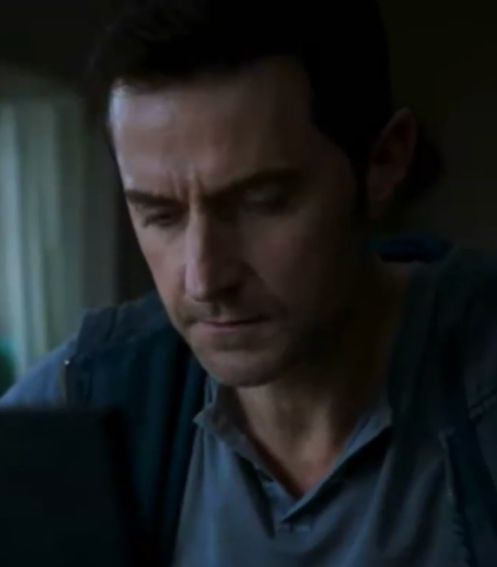
His blink opener, his whole face is pursed. (Or maybe he just has really dark eyeliner on this episode).
Daniel sends the picture back to Gemma Moore.
Meanwhile, Ingrid is convinced that Claudia did not commit suicide. She gets flowers that confirm her suspicions. That looks like American handwriting to me. Hector’s emotional meeting with “the thin young man” (Sabin Tambrea) generates the intriguing statement, “This is not how Thomas Shaw operates.” Steven drops off his shoes for repair along with a message for a meeting place (in a distinctly German handwriting).
Next, pursuing her line toward Yosova (sp?) Valerie breaks in on an English lesson on the past progressive tense. Her interlocutor is aware she’s not just catching up, so they go to pray in the same place as the “former” terrorist. We catch a piece of the Basmala and then a few verses from Surah Fassilat (a “chapter” in the Quran), beginning at 43, followed by an introduction in German and some words from Iosava (so that is how it’s spelled). While Iosava is proclaiming his redemption, the shoe repairman and his team are bugging (we assume) his apartment.
Another Berlin shot — Hector walking by and then having a clandestine meeting at a green-grocer. These are heavily run by non-Germans — there are Turkish signs in this one — and cheaper than the produce in the typical supermarket.
It looks like Hector is meeting with a South Asian (from the rhythm of the man’s speech).
The show is really flashing from plot point to point in a way that is very reminiscent of Olen Steinhauer’s writing style. It’s interesting to see this on TV. These moments don’t have the shortness of avant-garde movies but they are getting close. And using the the “drop into the information” style keeps me interpreting information from the previous episodes. For instance, at the end of episode 1, Hans wants to “say goodbye” to Dieter and Dieter hits him with the parting shot — “did you want me to suck your cock?” I thought that was metaphoric, but in the next scene we learn that Hans’ partner (Ulrich) is male.
Interesting that the Frosts have collected all the appropriate German heritage service ware, incidentally. I guess you can afford to do that on his salary. And an impending marital crisis. That was probably free.
Daniel is “Uncle Danny!” Daniel does look honestly happy, which is not something I’m really accustomed to seeing on Armitage characters’ faces.
Ingrid and her coworker head out to find out the truth about Claudia and Steven and Sandra meet for the bookend scene about their affair. Earlier, Kellie complained that Steven never tells her anything about work and Sandra neatly points out that Steven only wanted to talk to someone who had the necessary security clearance, although of course he denies it.
Next, an explosive scene between Daniel and Ingrid once he finally catches up with her — smart, Ingrid, to insist on a meeting in a very public place. I’ll eventually have more to say about this scene, but it’s high energy (despite or because? Victoria Meyer is acting in a foreign language and Armitage is exerting his American accident) and the language almost bruises the listener.
One of the things I don’t yet have enough information for a judgment on is Daniel’s motivation. There was this base level in Spooks; whenever the Grid wanted someone to do something it was because “lives were at stake.” It fell kind of flat after a while because the spooks had the attitude that they were always right. I don’t know if that’s because Berlin Station is Germans and Americans and the relationship has changed so much in the last twenty-five years, but this show and its characters seem much more realistic. Daniel tells Victoria he has her best interest at heart but her character is absolutely not having it. There are interesting moments in this scene of apparent concern, anger, and a sort of defensive Realpolitik (“Sorry we don’t live in a perfect world, Ingrid”).
Hector picks up some information; Valerie revives an old source who’s not that excited to be called upon. And then it’s time for “Uncle Danny,” who is, however, observed again as he’s entering the café.
PIC [at this point in the draft the picture uploader stopped working. Will add pics in later.]
Man, do I want to believe in this particular version of Daniel, just like I loved the open-hearted American he was playing while seducing Claudia, and on the one hand it seems there’s no reason not to. These are family members and this plot line makes him seem more humane (although if Steinhauer holds true to form, we’ll see Max and Patricia as hostages at some point). On the other hand, there is clearly a painful past here.
Hector next meets Faisal in a gay bar, in another “shades of Weimar” scene with a dark interior but occasionally icy flashes of blue lights — pointing out that the Saudi Embassy’s security is waiting to pick him up outside. Faisal seems not to be worried (shouldn’t this make Hector more worried?); Hector suggests a ruse but Faisal appears to experience a moment of personal liberation. Subsequently, Hector seems truly involved as he argues to Robert that they have to remove Faisal from Germany. Valerie sees a picture of Iosava with her agent. The contrast between Robert’s refusal to help Faisal and Steven’s payoff to the shoe repairman in the next scene is interesting. Americans are loyal if they can just pay? Americans are loyal if it’s a German involved but not an “Arab”?
When next week see him, Daniel is chasing his tail — who speaks German briefly — to figure out who he is. More German from Armitage. Intonation is good but he stumbles over “Auguststraße.” That is a hard one: st / st. Another great Berlin exterior.
PIC
Back at the embassy, more pressure from Gemma Moore in Washington. Valerie again shows up Steven. It becomes clear that part of her motivation for not “being a team player” is Steven’s refusal to help Gerald in the previous episode. Robert informs Hector that the Saudis are taking Faisal home (implication: he’ll be killed). Hector is ambiguously upset. Steven tries to do what Kellie wants and keep her up-to-date on what’s happening at work and she takes Valerie’s side! And in that context, we finally see Valerie’s human attachment — with whom she is having the same problem the Frosts are experiencing.
Daniel meets with the German spy who’s responsible for tailing him — who turns out to be a woman he recognizes. Although it’s hard to see in the darkness of this bar, Daniel has some real anguish on his face about Claudia’s death. And then the episode ends with a scene on the roof between Daniel and Hector, where we get Daniel’s mother’s backstory, and Hector warns Daniel that Berlin is dangerous.
How are we going to wait until Oct 16 — or realistically speaking, after that, since we’ve seen the first two episodes? — to find out what happens next?


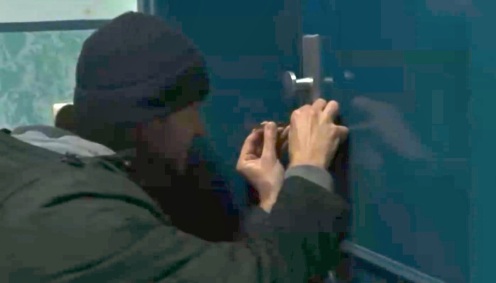
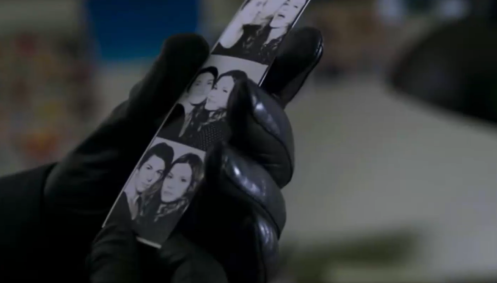

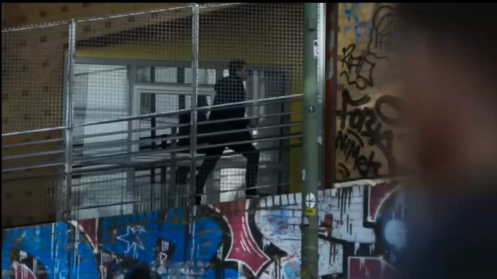
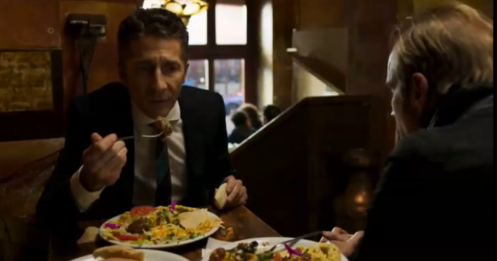
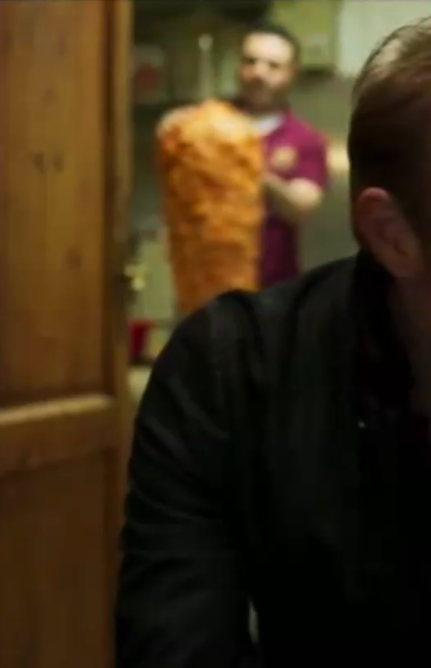

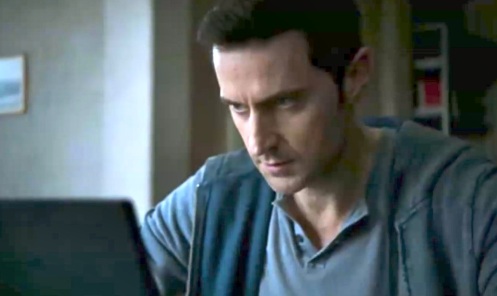





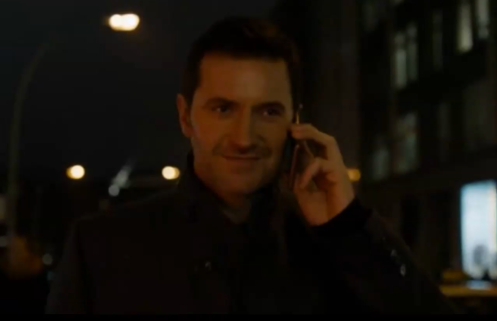

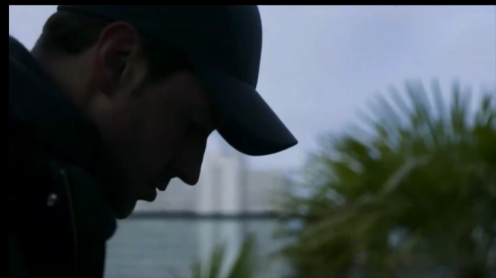



Watching Ep. 2 right now and I really like what I see: Richard Armitage and Berlin. I am thrilled. Sadly, I have no idea whether I’ll be able to see the other episodes ever 😏
LikeLike
I think you will 🙂
LikeLike
The realist approach is great, isn’t it?! I mean I liked Spooks a lot but sometimes the ‘We have to safe the world’ attitude got a bit worn out
LikeLike
I feel like since the end of the Cold War Americans are depicted in much more realistic terms and somewhat less like heroes — a lot of the “we are saving millions of lives” motif in Spooks reminds me of how Americans were often depicted in the 1950s. Although, Sarah C is also a pretty arrogant American ….
LikeLike
With a really bad American accent, she could have used Rebecca.
LikeLike
British TV is low budget 🙂
LikeLike
Granted that Boston may be about the hardest American accent to master. Actors never get it right. Good thing Ben Affleck, Matt Damon, and Mark Wahlberg are out there.
LikeLike
I think she was supposed to be Beltway / DC; her problem wasn’t that she didn’t know the American accent but that she kept switching between them. I wrote about this a lot at the time. She also either had script problems or ignored the script. There are agencies in the UK that will “Americanify” texts for you, but it wasn’t clear who exactly caused her problems with idiom.
LikeLike
Speaking of budget, is it typical for actors to wear so many of their own clothes and shoes in parts? You don’t seem to see that here.
LikeLike
It’s the other way round; Armitage reported in 2013 that he bought his entire Spooks wardrobe. And at some other point he was asked about the watch — that was also Spooks gear that he just bought from the wardrobe department.
LikeLike
It looked some of his things in BS.
LikeLike
BSt is an American / German coproduction, so it’s not UK TV. I’m sure it had a big budget. That said, I wouldn’t be surprised if he talked to wardrobe about his ideas for the character and what he would wear.
LikeLike
He likes what he likes.
LikeLike
(I meant European as opposed to American.)
LikeLike
Oh, OK. No, I’m not aware that actors bring their own clothes for European TV dramas, but I’m not aware that they don’t, either.
LikeLike
I think it felt natural for a long time to show Americans as heros because in many ways they were heros to a lot of people in Europe. But over the time it got a bit out of hands I guess
LikeLike
I thought you made an interesting and thought-provoking point. The workers at the Berlin Station are not friends or even good colleagues. There seems to be little or no trust and respect. Daniel is operating as a loner. It strikes me that in any high-pressure work environment, it isn’t enough to have talented people, but they need to trust and respect each other so that they can collaborate and do their best work. In this office, their job is truly dangerous, so trust is essential. As we are reminded by the subplots, they can’t even go home and talk things through with their spouses/partners. It seems like such a lonely, miserable atmosphere. This is in stark contrast with Spooks, where the team relationships were very strong.
I guess Daniel’s motivation will be revealed slowly, but he is something of a mystery.
LikeLike
yeah — the Spooks often led miserable or grief-stricken private lives, but they had each other. These folks definitely do not have that. Although I wonder if the reality isn’t somewhere in the middle.
LikeLike
In re Spooks: One of the main problems I had with the final three seasons of Spooks was this fundamental shift in theme, from the early seasons Spooks worldview that “we remain human in our inhuman jobs by clinging together as a makeshift family” to the final few seasons’ view that “every spook is an island cut off from the main.”
So I never liked Season 9, even though there was some good storytelling there. It seemed like there were so many masks being pulled off, until at the end there weren’t any actual persons underneath.
I’m hoping that even if Berlin Station is taking the “every spook is an island” approach, that at least as viewers we will be able to understand enough about the characters at least to sympathize with their (undoubtedly) dubious actions in episodes to come.
LikeLike
Judging from Steinhauer’s books, we’ll be clear on motivation for the characters’ actions. However, no guarantees about how you’ll feel about the nature of that motivation.
LikeLike
I think I’m all right with a character who does something dubious or even wrong — it’s just when it’s totally unexpected or the action is not fully grounded in what we know. Like, “oh, before Elizavieta the great love of his life, there was this other, even greater love of his life that we never told you about and he never forgot though he never thought about her. Here she is.”
LikeLike
But thanks for reassuring me about the likely progress of this story.
LikeLike
That’s a general objection to the season 9 plot development, though, no? As opposed to character development specifically. Maya wasn’t the only thing he “forgot,” but his entire previous life.
I think one thing we don’t often consider as viewers is the theme of self-deception (to take a neutral example from Spooks, Adam’s belief that he could somehow live something like a normal bourgeois life without impediments and being a Spook). This is something I really observed in Steinhauer’s novels (the ones I read) — Milo’s own vision of his motivation is clear, but my vision of it differs from his.
LikeLike
Re “transit worker”: I know I’m beeing petty here but I’m pretty sure he isn’t meant to be one, since a) he isn’t wearing any BVG uniform (which they usually do) and b) this building is actually a kindergarten (Google Maps: http://tinyurl.com/zkyzfap), hence the horde of children coming out of it.
And when you follow the Google Maps link, you can also find the bar Daniel and Claudia went to (Möbel Olfe) as well as her apartment building (although blurred on Google Earth) opposite the kindergarten.
Since I frequent that street quite often, I now have to wonder whether there really is a surveillance camera or not o.O (a very german concern I guess, lol). On the plus side: I should probably lock my bike where Daniel did next time, in case someone nicks it. ^^
LikeLike
Why would there be a Schalter / Theke like that at a kindergarten, though? It doesn’t make sense. And from what I understand, Germany is NOT full of surveillance cameras (unlike London) — so i don’t get why a kindergarten would qualify for one.
LikeLike
It’s more like an improvised Schalter/ Theke, though, since it’s just a window the guy inside opens after Daniel knocks. ^^
I now think the filmmakers deliberately chose not to specify what kind of building that’s meant to be because they felt there was no need for it. It’s just there, it has CCTV and a bloke in front of a screen, all set up by the filmcrew. However, it get’s a bit weird when you know that it actually is a kindergarten. XD
Oh and I should have pointed out that I was just joking about a camera really being there. 😉
LikeLike
oh, ok. But I think the question holds even for a fictional world. I’ve seen surveillance cameras in German transit terminals — because they or the ticket machines are often vandalized, I’ve always assumed. I’ve never seen one across the street from a kindergarten. (Well, maybe there’s one around the Zentralrat — don’t they have a daycare? — but that’s a special case.) Even in the fictional world, the camera has to be there for some reason, otherwise it would be illegal.
LikeLike
You’re right. As far as I know it’s illegal to set up surveillance cameras which oversee areas beyond your property lines – which is the case here. So I assume it’s just lazy screenwriting. I guess the majority of American and British viewers won’t question this since they’re used to it (?).
LikeLike
I dunno. It shows a lot of signals of transit office. And there are plenty of S-Bahn stations that have an entryway like that. Don’t think it’s that farfetched.
LikeLike
Maybe. But there are always big S- or U-Bahn signs at those entryways. And then the camera isn’t overviewing a station but part of the street and house facades. I still think it’s sloppy writing.
LikeLike
To be honest, I stumbled over that one, too.
There is no sign to indicate that this is supposed to be the entrance of an underground or S-Bahn station and the guy is not wearing uniform.
I know the area very well, spent a lot of nights at the Olfe and therefore would never interpret this scene as Servetus did.
It would be interesting to know what the writer’s intentions are.
The area is a criminal ‘hotspot’, therefore it’s absolutely possible that there really is a surveillance camera at this kindergarten to scare off drug dealers and other dubious rabble. A couple of years ago I’ve been mugged not even 200 metres away from this spot…
LikeLike
I suppose it’s possible there’s a camera across from a kindergarten, but it seems highly unlikely to me that there would be an office built around it outside of the building and that it would be manned. If the kindergarten has manned security with surveillance, it’s going to be inside the kindergarten building. The guy isn’t there just accidentally, it looks like it’s his place of work. I can’t think of a reason that there’d be a manned security office with surveillance cameras but no label on it at all in a neighborhood like this if it weren’t connected to something public/important, i.e., if it didn’t have a clear purpose, so I stand by my interpretation.
LikeLike
Well, the janitor/caretaker of my school used to have an ‘office’ exactly like this with counter and glass pane. Although there was no need for surveillance cameras in that time and place.
But my main point is really that there are simply no entrances to underground or S-Bahn stations without a sign (blue for underground / green for S-Bahn) with the name of the station on it in Berlin.
It’s just a minor thing but a person living here won’t identify this setting as related to public transport. And it’s even more ‘irritating’ for someone like me or slee, who actually know the street and the building. Sorry, cannot be helped. Déformation professionnelle for residents… 😉
That aside, I really like your blog. It’s thought-provoking and at times highly entertaining. I’ve been a silent reader for about a year now and never felt the urge to comment but this time I could not resist.
Please be lenient with my somewhat clumsy diction, English is not my native tongue, I’m German as you might have guessed.
LikeLike
Thanks and welcome! Your English is great!
LikeLike
Cheers!
LikeLike
I’m already liking this way more than I ever liked Spooks – the ambiguousness, the idea that it’s not really clear who is right and who is wrong and if there even is one right or one wrong. I really love that. Yes, Daniel seems to be the hero but even his ideas can be seen as questionable, as illustrated in that scene with Ingrid – you totally get that she sees things differently than he does and validly so.
Daniel does indeed seem more emotional than some of Richard’s other characters, I love that too. In that scene in ep 1 when he gets interviewd by Valerie about his mum, the emotion across Daniel’s face that he quickly suppresses with a hand swipe across his upper lip just as he responds – that brief flicker of emotion wowed me. As did the cat thing. And the delight he had spending time with his cousin and kid.
LikeLike
The other thing that consistently bugged me about Spooks was the deus ex machina of information — we need to know something? We’ll just call up GCHQ? Or we have immediate access to surveillance cameras. I’m hoping that their reliance on traditional spycraft here including old-fashioned bugging means that they aren’t going to go that route.
Interesting that you call him more emotional (and I read that as more American). LOL.
LikeLike
Re: ambiguousness: Absolutely! I had big problems with the glorification of the Überwachungsstaat/ mass surveillance in Spooks. I don’t think that was ever challenged. And I think it’s crucial to be thoroughly questioned in Berlin Station.
LikeLike
yeah, no way to avoid it with this plot.
LikeLike
[…] never had anything additional to say about episode 2; those comments are still here. I’m starting to get the feeling that these are going to be really different from the Spooks […]
LikeLike
[spoilers] Berlin Station, episode 3 thoughts #richardarmitage | Me + Richard Armitage said this on October 31, 2016 at 6:32 am |
[…] Dieter, his previous deputy, was exposed as a CIA mole in episode 1.1. We encounter her first in 1.2, when Daniel’s request for a meeting with whoever it is that’s tailing him brings her […]
LikeLike
Can Berlin Station fix the Esther and Daniel thing? [part 1] #richardarmitage | Me + Richard Armitage said this on January 2, 2018 at 11:14 am |
[…] exchange feels totally in character for Daniel — I’m reminded of the scene in series 1 when he’s talking to Ingrid on the roof of the Bikini Bar. (He’s trying to get Sofia to stay away from the Centennial celebrations that night in order […]
LikeLike
Berlin Station 3.2, first impressions [spoilers!] #richardarmitage | Me + Richard Armitage said this on November 29, 2018 at 1:58 am |
[…] the show becomes surreal. Just really strange. We’re taken back to the shoemaker’s from 1.2 and 1.8 who bugged the terrorist’s flat and sheltered Steven — and it’s the same […]
LikeLike
Berlin Station 3.4, first impressions [spoilers!] #richardarmitage | Me + Richard Armitage said this on December 24, 2018 at 9:12 am |